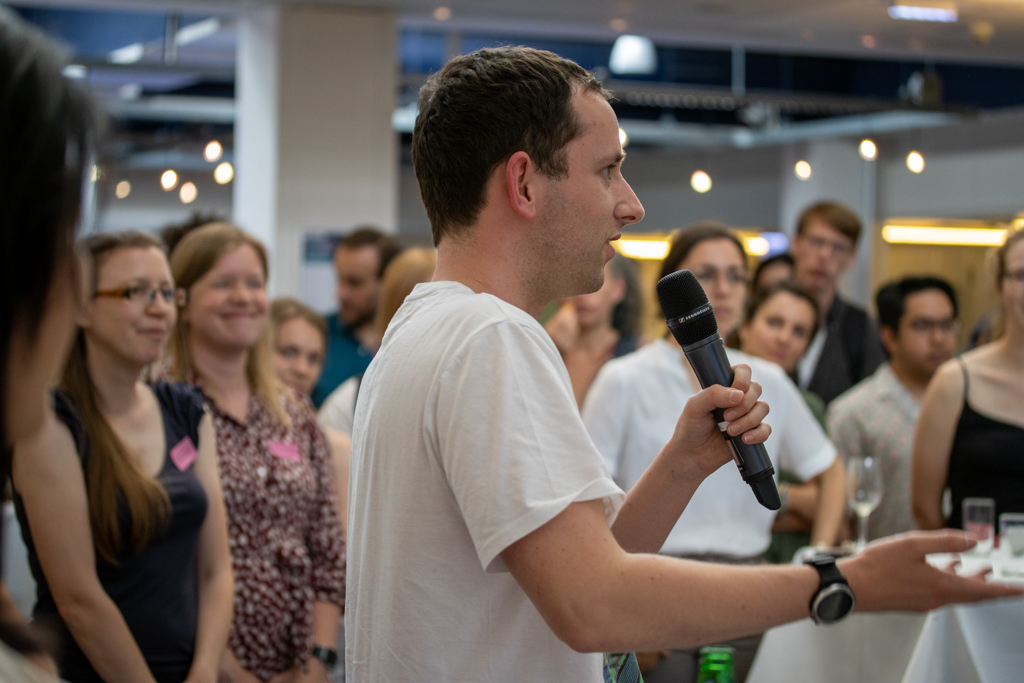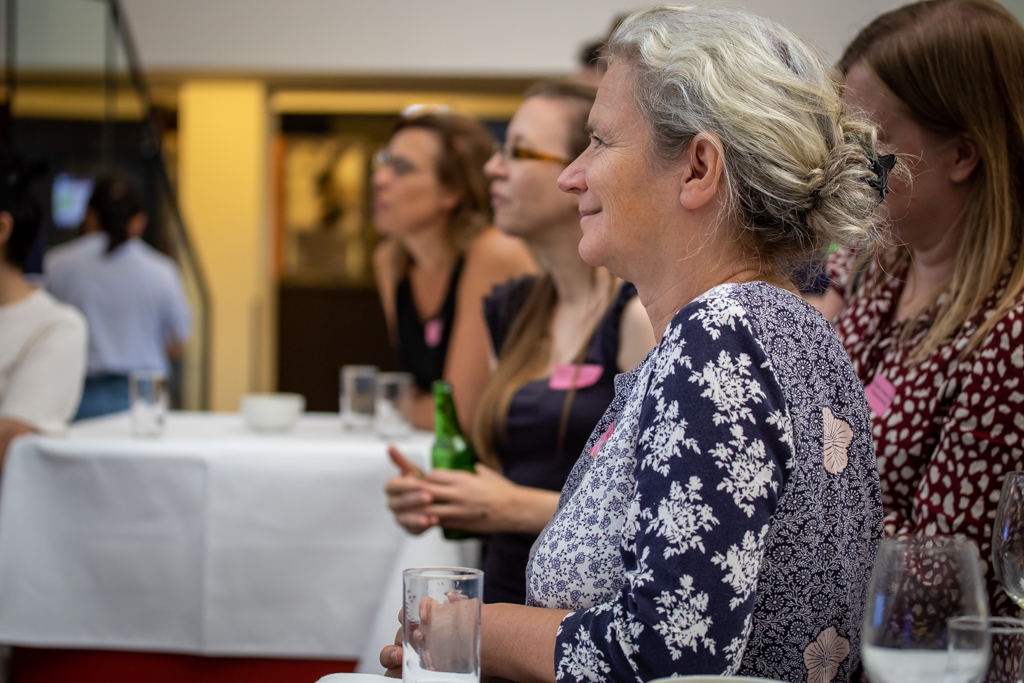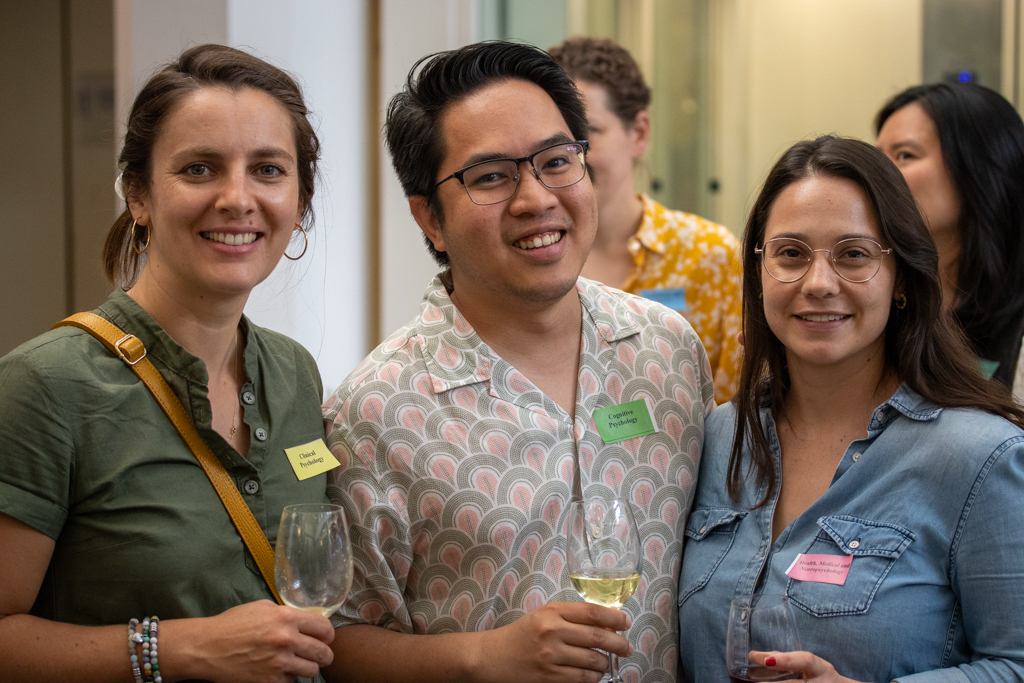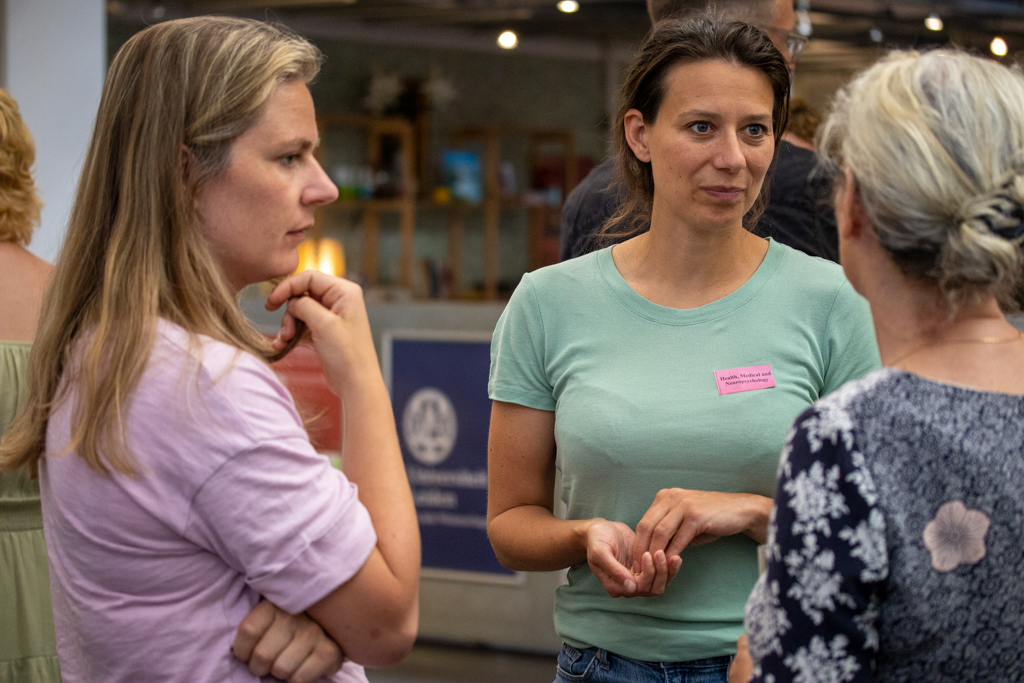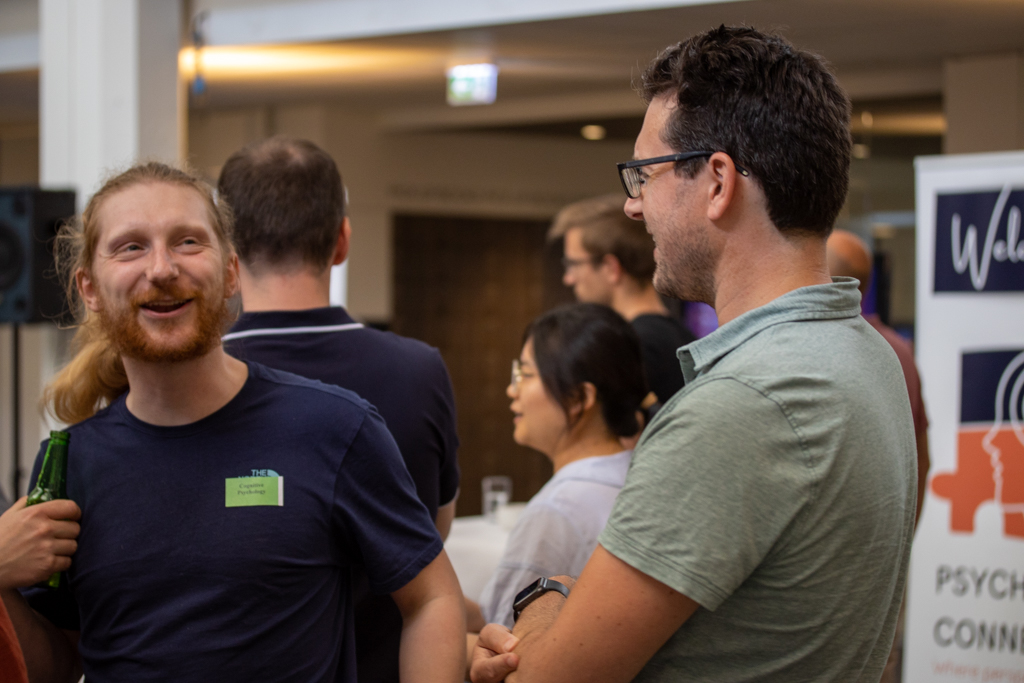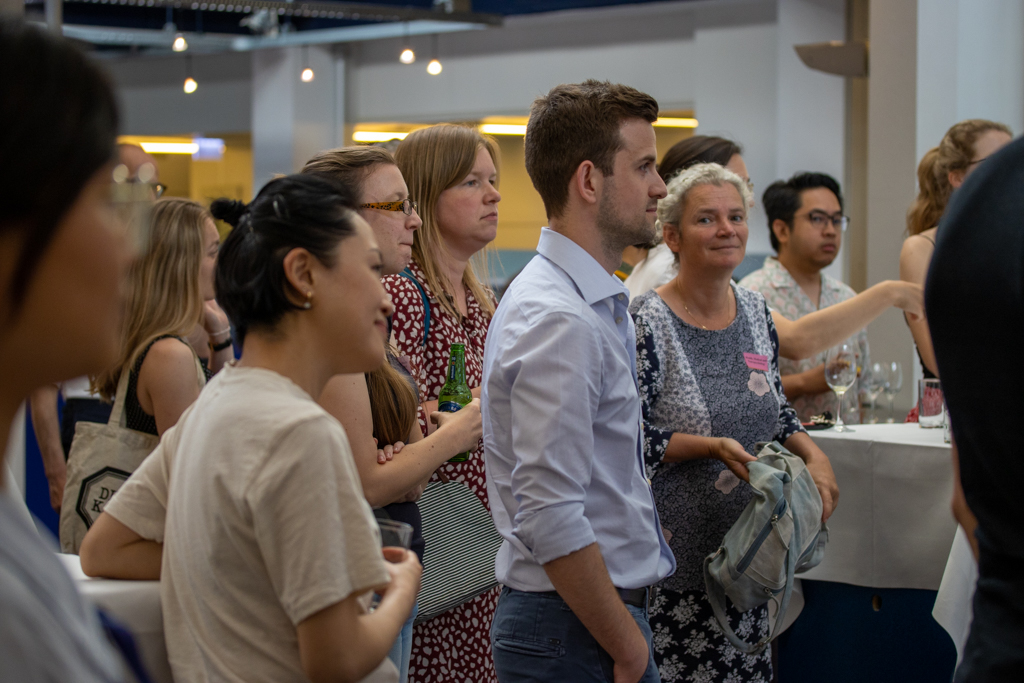
Psychology Connected on ChatGPT: How can we use AI without losing our own cognitive skills?
Writing essays, refining grant applications, or creating a new course curriculum—ChatGPT assists students and researchers in these endeavours. What this new technology means for working in academia, was discussed during the fourth Psychology Connected.
'Who has never used ChatGPT?' asks moderator Michiel van Elk. Several hands go up. Then a brief demonstration follows. The simple interface of the chatbot appears on the screen in the hall.
'Who are you?'
I am ChatGPT, an AI language model developed by OpenAI. My purpose is to assist and provide information on a wide range of topics to the best of my abilities. How can I assist you today?'
Lousy psychotherapist
Within five days of OpenAI launching ChatGPT in November 2022, the website garnered a million unique visitors. Media outlets reported on the 'technological revolution' we had suddenly found ourselves in. However, ChatGPT is not entirely new; two previous versions preceded this AI tool. 'So why did everyone seem so surprised by the arrival of this third version?' Van Elk asks the speakers.
'The quality wasn't as good before,' says Roy de Kleijn, a robotics and artificial intelligence researcher. 'For example, in 1965, there was chatbot ELIZA, a computer program that emulated the conversation techniques of a Rogerian therapist. It mostly repeated what you inputted, and the texts it produced were sentences a lousy psychotherapist would say.'
That changed with the development of Transformers in 2017, a new machine learning model based on neural networks. De Kleijn remarks: 'But today's ChatGPT has a user interface that is familiar to us, making it much easier to work with.'
Writing structures our thoughts
Students also know their way around the chatbot. But what do you learn from an essay assignment when you can generate a credible argument in a matter of minutes? 'When ChatGPT was released, we immediately withdrew all writing assignments,' says neuropsychologist Judith Schomaker. 'The question now is how we should deal with this in education.' It is essential to first consider why it is valuable to spend hours working on a text.
'Writing helps structure your thoughts and build a logical argument. But maybe there are other ways to develop those skills,' says De Kleijn. 'What ways exactly, I don't know yet.' Schomaker adds, 'In conversation with other people, you also structure your thoughts, but aloud.'
They also use the program themselves. Schomaker says, 'I recently discovered how well ChatGPT can code; I recommend it to everyone. I also use it when writing grant applications; I already have a text, but ChatGPT provides new ideas. It also helps me organize my thoughts.' De Kleijn adds, 'When I had to outline the learning objectives of a new course, it gave me excellent suggestions. I just had to refine them a bit.'
Not so dystopian
At the end of March, over a thousand scientists and tech experts wrote an open letter urging a halt to AI development until clear boundaries and legislation are established. How do the speakers envision the future of ChatGPT? 'Not so dystopian,' says De Kleijn. Schomaker adds, 'It is estimated that half of the jobs will be replaced by AI, so society will certainly undergo changes.' De Kleijn suggests that this will mainly affect routine work.
A new version of ChatGPT is currently in development. 'I hope the next step is that it can draw new conclusions and not solely rely on the existing corpus,' says De Kleijn. 'And that the chatbot can remember conversations,' says Schomaker. Currently, the bot 'forgets' everything discussed with each new input. 'It would be cool if it could refer back to something you've talked about a few conversations ago.' Suddenly, having a personal chat with our AI bot doesn't seem so far-fetched. For as long as it remains our only option, Van Elk concludes with a non-artificial toast.
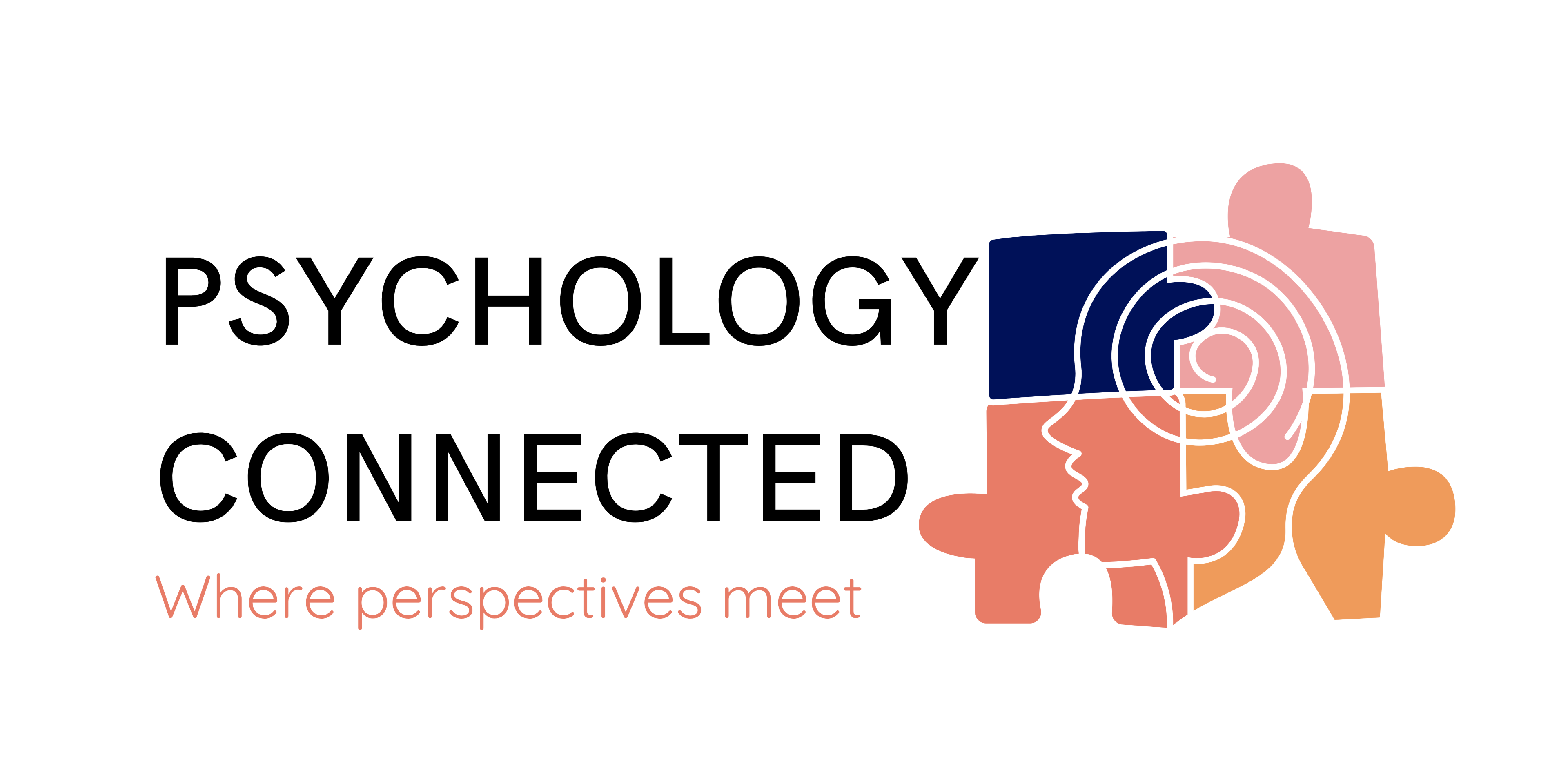
This was the final Psychology Connected event of the academic year. New editions will be held next year! Keep an eye on the the event page for the latest updates.
Missed the previous edition of Psychology Connected on making mistake in science? Read the recap here.

